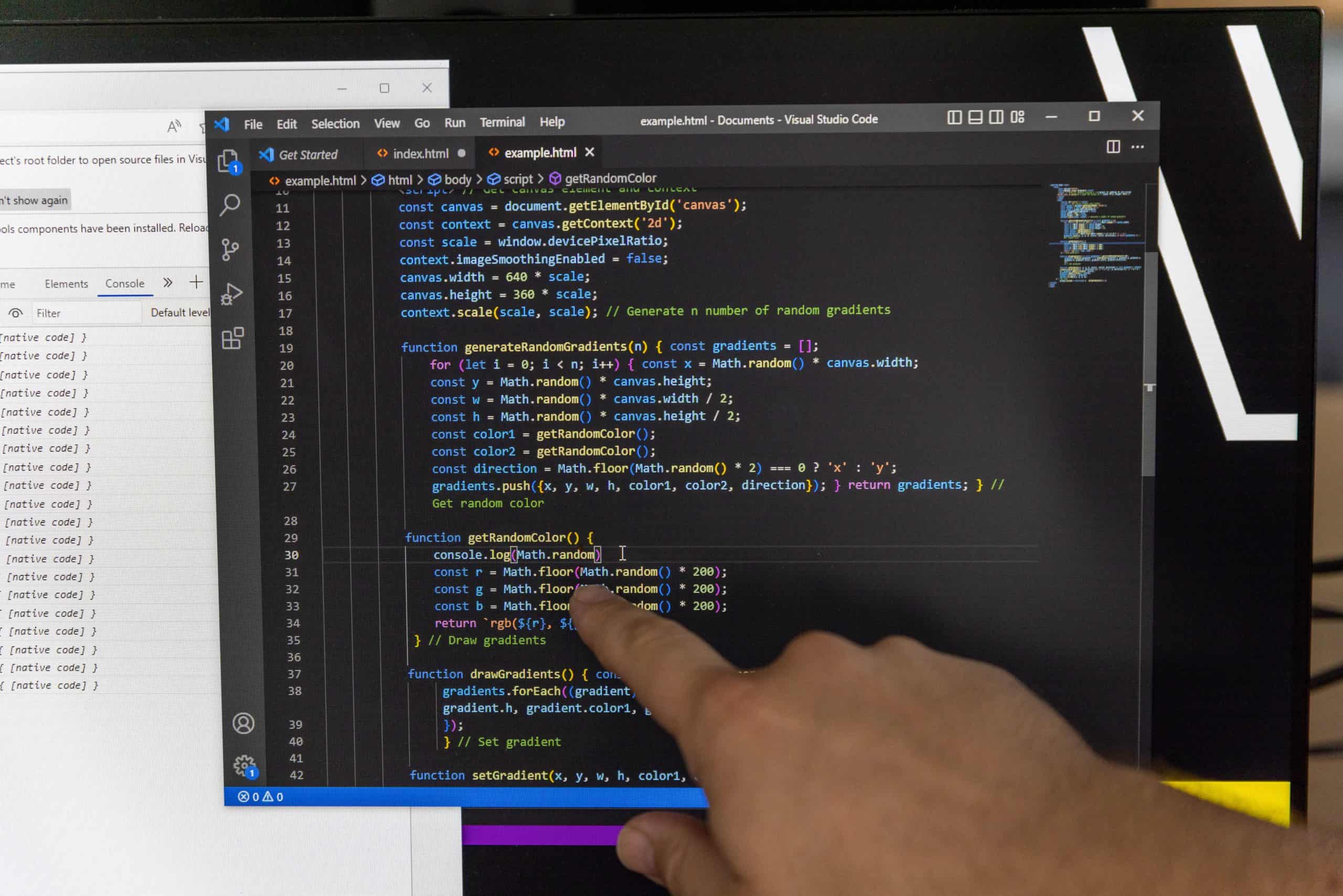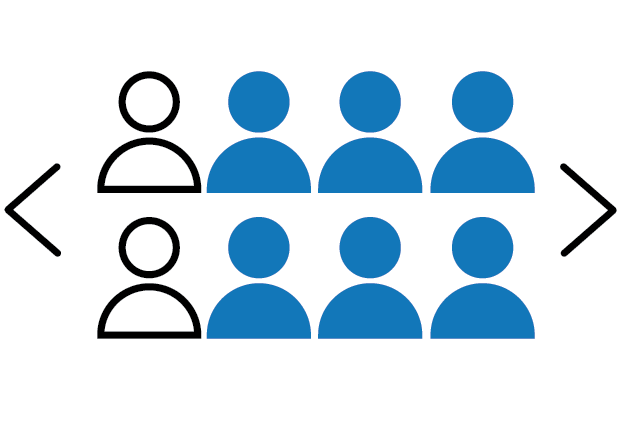
Whitecliffe has agreements with professional bodies, such as EC Council, Microsoft, Cisco, RedHat, CompTIA and Oracle. Endorsed by IT Professionals New Zealand and part of the Seoul Accord.
Choose from industry-aligned programme designed to equip you with the skills, specialisation and confidence to lead in tomorrow’s digital world.
IT Certificates and Diplomas are ideal for school-leavers or career changers looking to break into tech with practical, hands-on training.
These short IT courses (18 weeks to 1 year) provide job-ready skills or a pathway into further stufy to degree level.
IT Degrees are suited to those seeking a deeper, long term pathway into IT, whether you’re just starting out or advancing your career.
They offer comprehensive training over 1 to 3 years, with options to specialise, gain industry experience and progress into expert or leadership roles.
Microcredentials are short, focused online IT courses designed for upskilling in specific tech areas like cybersecurity, network defence or full stack development.
Ideal for working professionals or those prior knowledge, these programs run for 9 to 18 weeks and help you build in-demand skills fast without committing to a full degree.
No Intake for 2026
Auckland City Symonds Street Campus
Manukau Campus
Christchurch Campus
Where will this programme take you?
February 2026
16/02/2026
July 2026 Intake
20/07/2026
Auckland City Symonds Street Campus
Manukau Campus
Christchurch Campus
Wellington Campus
August Intake - Evening online classes and In-person Labs
Where will this programme take you?
May 2025 Intake
05/05/2025
July 2025 Intake
21/07/2025
October 2025 Intake
06/10/2025
Auckland City Symonds Street Campus
Wellington Campus
Christchurch Campus
Where will this programme take you?
February 2026 Intake
16/02/2026
July 2026 Intake
20/07/2026
September 2026
21/09/2026
Auckland City Symonds Street Campus
Manukau Campus
Christchurch Campus
Wellington Campus
Where will this programme take you?
March 2026 Intake
30/03/2026
Auckland City Symonds Street Campus
Wellington Campus
Christchurch Campus
Where will this programme take you?
July 2025 Intake
27/07/2025
November 2025 Intake
24/11/2025
March 2026 Intake
30/03/2026
Auckland City Symonds Street Campus
Wellington Campus
Christchurch Campus
Where will this programme take you?
15 credits, Level 6
15 credits, Level 6
Intake: 12/01/2026
Intake: 20/07/2026
100 % online study
Adults with IT industry experience related to information security/network security seeking to upskill or shift to new roles.
School leavers with experience in IT (possible additional guidance may be required for such learners)
9 weeks (150 hours total)
40 credits, Level 6
Intake: 16/02/2026
Intake:
100 % online study
Adults with IT industry and/or L5 programming experience seeking to upskill or shift to new roles requiring Python.
Level 5 knowledge and skills through work experience or qualifications, such as programming knowledge, CSS HTML Adults seeking skills in Python programming to create front and back-end designs in the context of IT industry Practice.
18 weeks (450 hours total)
40 credits, Level 6
Intake: 20/07/2026
Intake:
100 % online study
Adults in IT industry and/or L5 programming experience seeking to upskill or shift to new roles requiring .Net.
Level 5 knowledge and skills through work experience or qualifications, such as programming knowledge, CSS HTML.
Adults seeking skills in .Net programming to create front and back-end designs in the context of IT Industry Practice.
18 weeks (450 hours total)
Study in world-class campuses with cutting-edge labs and small classes. Join students from 20+ countries and connect with tech leaders in New Zealand’s $13.5 billion tech industry.

The stats speak for themselves

GROWTH
In cybersecurity roles by 2025

NEW JOBS
In software development across ANZ by 2026

OF FUTURE JOBS
Will require digital skills by 2030
In New Zealand, Tech contributes $13.5 billion annually to the economy.
We partner with Globally recognised techology brands
We offer a full range of IT programmes, including a Bachelor of Applied Information Technology and a one-year Master's degree. We provide pathways into the field with our Certificate in Information Technology and Diploma in Web Development & Design. For those looking to advance their expertise, we also offer a Postgraduate Diploma in Information Technology.
The degrees main focus is to make you industry-ready by blending deep technical knowledge with practical, hands-on skills. You will be prepared for a career in high-demand fields like software development, networking infrastructure, cybersecurity, systems analysis, and data analytics.
The main entry requirement for the Bachelor’s degree is NCEA Level 3 or an equivalent qualification for domestic students. For specific entry details for all our IT programmes, including postgraduate and certificate-level options, please refer to the individual programme pages.
An IT qualification from Whitecliffe prepares you for high-demand roles such as Software Developer, Cybersecurity Analyst, Network Administrator, Web Developer, and Data Analyst. The tech sector in New Zealand is growing rapidly, and our programmes are designed to align with the skills employers are actively looking for.
Yes, our IT degrees include significant practical experience, including an industry project within the Bachelor’s programme. This gives you invaluable hands-on experience, allowing you to apply your learning to a professional environment and build connections before you even graduate.
Our IT programmes are unique due to our deep industry partnerships and exclusive accreditations. Whitecliffe is the only provider in New Zealand with EC-Council accreditation for ethical hacking, and our Master’s programme is aligned with leading industry certifications from Microsoft and CompTIA, giving you a distinct advantage in the job market.
Tuition fees vary by programme, and financial help is available for domestic students through options like StudyLink loans and the government’s Fees Free policy. You can find detailed fee information on each programme page.
Yes, international students are welcome to apply. You will need to meet the academic and English language requirements for your chosen programme, and our Admissions Team is here to help guide you through the application and student visa process.
Yes, you can study IT flexibly through our blended learning model, which combines on-campus, face-to-face learning with the convenience of online study. This approach is designed to support students who may be balancing work or other commitments.
It is an excellent time to study IT because New Zealand’s fast-growing tech sector has a significant skills shortage. This creates high demand and strong career opportunities for graduates, with roles like Cybersecurity Analyst and Software Engineer being on the government’s Green List’s for skilled migrants. IT FAQs (higher level overview by Whitecliffe)